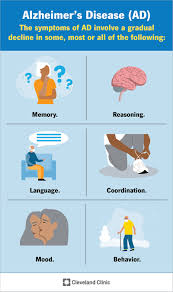Alzheimer’s blood test can spot people with early symptoms, study suggests
A new blood test for Alzheimer’s disease can accurately detect people with early symptoms, research suggests. Experts from the Mayo Clinic in the US have provided further evidence that blood tests can work to accurately diagnose dementia by examining two proteins in blood plasma.
The proteins – amyloid beta 42/40 and p-tau217 – are associated with amyloid plaque buildup, which is a hallmark of Alzheimer’s disease. Researchers found the blood test was highly accurate, with 95% sensitivity, which means it was 95% accurate in picking up people with memory problems, with very few cases missed.
It was also 82% for specificity, which means it was also highly accurate in ruling out people without dementia. The study was carried out on more than 500 people in an outpatient memory clinic, meaning it is real-world data.
The blood test has been approved by the Food and Drug Administration regulator in the US. Dr Gregg Day, who led the study in the journal Alzheimer’s and Dementia, said the test was as good as more invasive tests in use.
“Our study found that blood testing affirmed the diagnosis of Alzheimer’s disease with 95% sensitivity and 82% specificity,” he said. “When performed in the outpatient clinical setting, this is similar to the accuracy of cerebrospinal fluid biomarkers of the disease and is much more convenient and cost-effective.”
Overall, researchers found that p-tau217 levels were higher in patients with Alzheimer’s disease versus those without the disease. Day said the next steps in the research were to evaluate blood-based testing in more diverse patient populations and people with early Alzheimer’s who showed no cognitive symptoms.
Dr Richard Oakley, associate director for research and innovation at the Alzheimer’s Society in the UK, said the results “suggest this test is very accurate” and could be used alongside other tests and observations from a trained health professional. “This study shows how blood tests are making diagnosis of Alzheimer’s disease quicker, easier and more accessible than ever before in a real-world setting,” he added.
“While focused on Alzheimer’s disease, the test was evaluated in people with other types of dementias too, showing that it may help with differentiate causes of cognitive decline, though more research in diverse groups of individuals and in community-based setting is still needed. “Currently diagnosis options in the UK are often slow, expensive and can be invasive, meaning thousands miss out on the benefits one can bring.
“It’s great to see blood tests like this approved for clinical use in the US. We hope to see the same in the NHS, which is why we’re part of the Blood Biomarker Challenge.” The Blood Biomarker Challenge is a multimillion-pound research programme supported by the Alzheimer’s Society, Alzheimer’s Research UK and the National Institute for Health and Care Research. Its goal is to bring blood tests for dementia diagnosis to the National Health Service by 2029.
Oakley said: “Blood tests will be critical to accelerate diagnosis and give more people access to the care, support and treatments they desperately need faster than ever before. “We must see long-term investment in the tools and workforce needed to ensure everyone living with dementia can get an early an accurate diagnosis, which is even more important with disease-modifying treatments on the horizon.”
Dr Julia Dudley, head of research at Alzheimer’s Research UK, said: “We urgently need to improve how we diagnose dementia and it’s great to see international research working towards this goal. “Blood tests in this study look at p-tau217 and amyloid beta 42/40 and showed the tests offered high accuracy in confirming Alzheimer’s disease. “This study adds to the growing evidence that blood tests can detect the diseases that cause dementia in people with early memory and thinking problems.
“An important point to consider is that people taking part in research don’t always reflect the full diversity of those affected by dementia, who might have additional conditions or other characteristics. “That is why work is needed to understand whether these blood tests work in a real-world setting. “In the UK, studies like the Blood Biomarker Challenge are helping to build this evidence. The study is testing blood tests, including p-tau217, in thousands of people from sites across the UK. “This work will be a crucial part of making diagnosis easier and faster, which will bring us closer to a cure.”
Alzheimer's disease, dementia, memory loss, neurodegeneration, cognitive decline, brain health, aging brain, amyloid plaques, tau protein, mild cognitive impairment, early-onset Alzheimer's, late-onset Alzheimer's, Alzheimer’s diagnosis, Alzheimer’s treatment, caregiving, neuroinflammation, genetics of Alzheimer’s, mental deterioration, Alzheimer’s research, neurobiology
#Alzheimers, #Dementia, #MemoryLoss, #BrainHealth, #CognitiveDecline, #Neurodegeneration, #EndAlz, #AgingBrain, #AlzAwareness, #CaregiverSupport, #Neurology, #DementiaCare, #EarlyDetection, #BrainResearch, #MentalHealth, #AlzheimersSupport, #HealthyAging, #AlzResearch, #FightAlzheimers, #AlzHope
International Conference on Genetics and Genomics of Diseases
Visit: genetics-conferences.healthcarek.com
Award Nomination: genetics-conferences.healthcarek.com/award-nomination/?ecategory=Awards&rcategory=Awardee
Award registration: genetics-conferences.healthcarek.com/award-registration/
For Enquiries: contact@healthcarek.com
Get Connected Here
---------------------------------
---------------------------------
in.pinterest.com/Dorita0211
twitter.com/Dorita_02_11_
facebook.com/profile.php?id=61555903296992
instagram.com/p/C4ukfcOsK36
genetics-awards.blogspot.com/
youtube.com/@GeneticsHealthcare
linkedin.com/in/genetics-research-160337363/
#Alzheimers, #Dementia, #MemoryLoss, #BrainHealth, #CognitiveDecline, #Neurodegeneration, #EndAlz, #AgingBrain, #AlzAwareness, #CaregiverSupport, #Neurology, #DementiaCare, #EarlyDetection, #BrainResearch, #MentalHealth, #AlzheimersSupport, #HealthyAging, #AlzResearch, #FightAlzheimers, #AlzHope
International Conference on Genetics and Genomics of Diseases
Visit: genetics-conferences.healthcarek.com
Award Nomination: genetics-conferences.healthcarek.com/award-nomination/?ecategory=Awards&rcategory=Awardee
Award registration: genetics-conferences.healthcarek.com/award-registration/
For Enquiries: contact@healthcarek.com
Get Connected Here
---------------------------------
---------------------------------
in.pinterest.com/Dorita0211
twitter.com/Dorita_02_11_
facebook.com/profile.php?id=61555903296992
instagram.com/p/C4ukfcOsK36
genetics-awards.blogspot.com/
youtube.com/@GeneticsHealthcare
linkedin.com/in/genetics-research-160337363/

Comments
Post a Comment